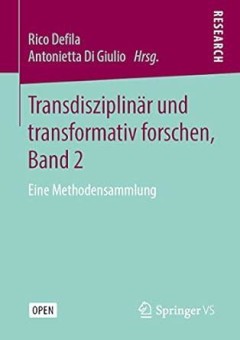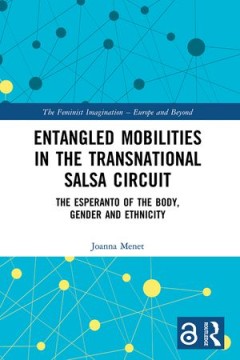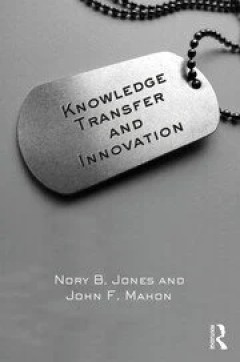Filter by

Transdisziplinär und transformativ forschen, Band 2 : Eine Methodensammlung
Dieses Open-Access-Buch setzt die 2018 begonnene Sammlung von Methoden für transdisziplinäre, transformative wie nicht-transformative Forschung fort. Auch in Band 2 werden Methoden der Wissenserzeugung, Wissensintegration und Transformation so ausführlich beschrieben, dass Dritte sie umsetzen können. Entwickelt wurden die Methoden von Reallaboren in Baden-Württemberg, sie eignen sich jedoc…
- Edition
- 1
- ISBN/ISSN
- 9783658271350
- Collation
- X, 374 hlm; ill., lamp.,
- Series Title
- -
- Call Number
- -

Process Mining Workshops: ICPM 2022 International Workshops, Bozen-Bolzano, I…
This open access book constitutes revised selected papers from the International Workshops held at the 4th International Conference on Process Mining, ICPM 2022, which took place in Bozen-Bolzano, Italy, during October 23–28, 2022. The conference focuses on the area of process mining research and practice, including theory, algorithmic challenges, and applications. The co-located workshops…
- Edition
- -
- ISBN/ISSN
- 9783031278150
- Collation
- XI, 592
- Series Title
- 468
- Call Number
- -

Process Mining Workshops: ICPM 2021 International Workshops, Eindhoven, The N…
This open access book constitutes revised selected papers from the International Workshops held at the Third International Conference on Process Mining, ICPM 2021, which took place in Eindhoven, The Netherlands, during October 31–November 4, 2021. The conference focuses on the area of process mining research and practice, including theory, algorithmic challenges, and applications. The co-loca…
- Edition
- -
- ISBN/ISSN
- 9783030985813
- Collation
- XIV, 410
- Series Title
- -
- Call Number
- -

Semantic Systems. The Power of AI and Knowledge Graphs: 15th International Co…
This open access book constitutes the refereed proceedings of the 15th International Conference on Semantic Systems, SEMANTiCS 2019, held in Karlsruhe, Germany, in September 2019. The 20 full papers and 8 short papers presented in this volume were carefully reviewed and selected from 88 submissions. They cover topics such as: web semantics and linked (open) data; machine learning and deep lear…
- Edition
- 1
- ISBN/ISSN
- 9783030332204
- Collation
- XVII, 392
- Series Title
- -
- Call Number
- -

Semantic Systems. In the Era of Knowledge Graphs: 16th International Conferen…
This open access book constitutes the refereed proceedings of the 16th International Conference on Semantic Systems, SEMANTiCS 2020, held in Amsterdam, The Netherlands, in September 2020. The conference was held virtually due to the COVID-19 pandemic.
- Edition
- 1
- ISBN/ISSN
- 9783030598334
- Collation
- XIII, 127
- Series Title
- -
- Call Number
- -

Entangled Mobilities in the Transnational Salsa Circuit : The Esperanto of th…
With attention to the transnational dance world of salsa, this book explores the circulation of people, imaginaries, dance movements, conventions and affects from a transnational perspective.
- Edition
- -
- ISBN/ISSN
- 9781003002697
- Collation
- -
- Series Title
- -
- Call Number
- T 306.42

Information and Knowledge Organisation in Digital Humanities : Global Perspec…
- Edition
- -
- ISBN/ISSN
- 9781003131816
- Collation
- -
- Series Title
- -
- Call Number
- -
- Edition
- -
- ISBN/ISSN
- 9781003131816
- Collation
- -
- Series Title
- -
- Call Number
- -

The politics of knowledge in inclusive development and innovation
- Edition
- -
- ISBN/ISSN
- 9781003112525
- Collation
- -
- Series Title
- -
- Call Number
- -
- Edition
- -
- ISBN/ISSN
- 9781003112525
- Collation
- -
- Series Title
- -
- Call Number
- -

Knowledge Transfer and Innovation
Knowledge? : what knowledge? -- Explosive innovation : putting knowledge to work -- Leadership -- Culture -- Knowledge corruption -- Training and socialization -- Knowledge structure and processes -- Technologies and social media -- Putting it all together -- A "Rosetta stone" for military skills translation to business.
- Edition
- -
- ISBN/ISSN
- 9781315200163
- Collation
- -
- Series Title
- -
- Call Number
- -

Process Mining Workshops
This open access book constitutes revised selected papers from the International Workshops held at the Third International Conference on Process Mining, ICPM 2021, which took place in Eindhoven, The Netherlands, during October 31–November 4, 2021. The conference focuses on the area of process mining research and practice, including theory, algorithmic challenges, and applications. The co-l…
- Edition
- 1
- ISBN/ISSN
- -
- Collation
- -
- Series Title
- Lecture Notes in Business Information Processing
- Call Number
- XIV, 410
 Computer Science, Information & General Works
Computer Science, Information & General Works  Philosophy & Psychology
Philosophy & Psychology  Religion
Religion  Social Sciences
Social Sciences  Language
Language  Pure Science
Pure Science  Applied Sciences
Applied Sciences  Art & Recreation
Art & Recreation  Literature
Literature  History & Geography
History & Geography